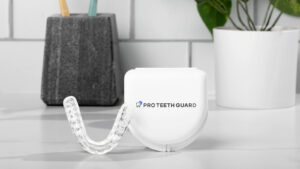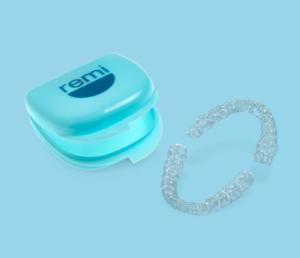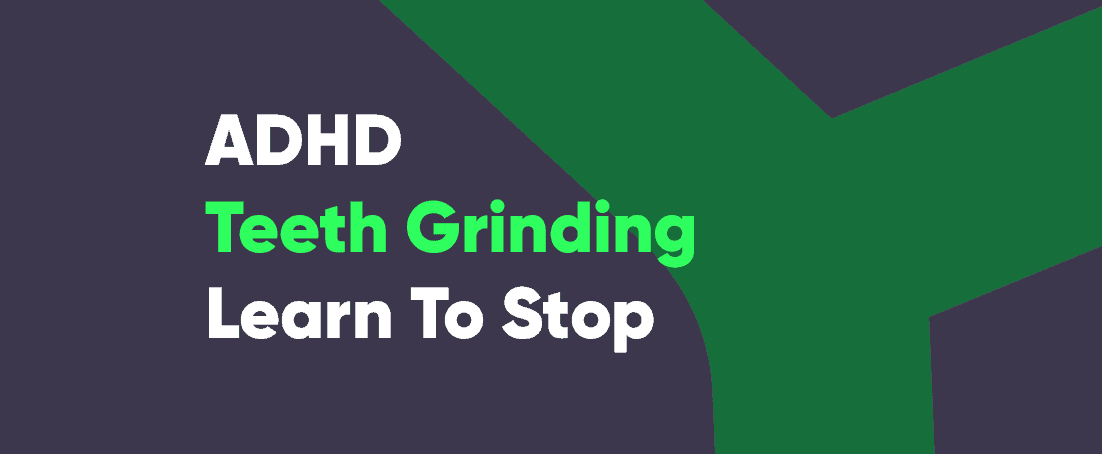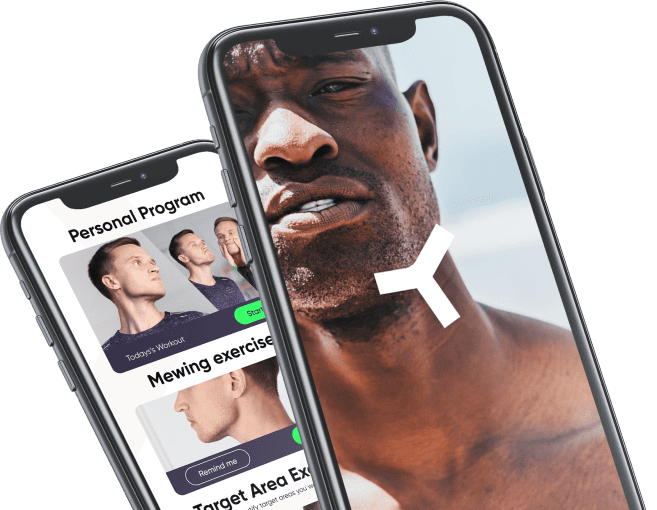Did you know that the nocturnal symphony of teeth grinding has a unique connection to Attention Deficit Hyperactivity Disorder (ADHD)? Recent research has unveiled that there is a strong connection between these seemingly unrelated phenomena.
According to this study, individuals with ADHD may be more prone to teeth grinding during sleep. This revelation opens a gateway to understanding the complex interplay between neurological conditions and seemingly unrelated physical manifestations.
Join us on a journey to unravel the mysteries behind ADHD and teeth grinding and explore potential strategies to curb this nighttime grind.
Most Common ADHD Teeth Grinding Causes
ADHD teeth grinding, or bruxism is influenced by various factors beyond the neurological domain. Let’s have a look at the several causes below:
- Stress, a recognized culprit, often exacerbates grinding episodes. Heightened anxiety tends to manifest in unconscious teeth clenching and may cause teeth chattering anxiety.
- Changes in medication may inadvertently lead to increased bruxism.
- Neurobiological factors and hyperactivity may also play a role. Moreover, those with ADHD may show increased jaw muscle activity when they sleep. This would further connect the disorder to bruxism.
- Sleep disturbances may contribute to irregular sleep patterns. Inadequate rest may amplify tooth grinding to those with ADHD teeth clenching issues.
- Stimulant medications, frequently prescribed for ADHD management, might inadvertently intensify nocturnal bruxism.
Understanding these diverse factors is crucial for tailoring effective strategies to alleviate the often-overlooked nocturnal symphony of teeth grinding in individuals with ADHD. You can also save ADHD children from long-term teeth-clenching nightmares.
Stress Grind Axis in ADHD
Stress is frequently entwined with ADHD and appears as a common thread uniting the two disorders and causing tooth grinding.
The constant demands and hypersensitivity associated with Attention-Deficit-Disorder can increase stress levels. It will, therefore, set off a series of physiological reactions. They include heightened jaw muscular tension that results in teeth grinding.
This nocturnal manifestation is a result of the complex dance between stress and ADHD. To effectively treat ADHD and teeth grinding, it’s imperative to identify and address stress as a critical element. This highlights the need for a complete strategy to alleviate these interconnected difficulties’ mental and physical parts.
Medication Munch and Grinding of Teeth
Certain medications prescribed for ADHD have been associated with an increased risk of bruxism. These are particularly stimulants like amphetamines or methylphenidate. These medications enhance neurotransmitter activity, affecting arousal levels and muscle tension. The heightened arousal, although beneficial for managing ADHD symptoms, may inadvertently lead to jaw clenching and teeth grinding.
The precise mechanisms behind this link are not fully understood, and individual responses can vary. It’s crucial for healthcare providers to be aware of this potential side effect and monitor patients regularly. Consider adjustments to medication or additional interventions if bruxism becomes a concern.
Non-Medical Maneuvers for ADHD-Induced Teeth Grinding
ADHD-induced teeth grinding, or bruxism can be addressed through non-pharmacological strategies. Below are some of the techniques which can address the problem.
1. Mewing
Mewing, a technique involving proper tongue posture against the palate, promotes jaw alignment. It also reduces grinding by enhancing overall oral and facial muscle balance. A guide on mewing will provide you with step-by-step instructions if you want to incorporate this technique into your daily routine.
2. Mindfulness Meditation
Mindfulness meditation offers a mental approach to managing stress, a common trigger for teeth grinding. By cultivating present-moment awareness and stress reduction, individuals with ADHD experience a positive impact on bruxism.
3. Yoga or Exercise Routines
Engaging in yoga or regular exercise routines reduces stress and improves mental well-being. Physical activity helps regulate the nervous system, potentially reducing the likelihood of teeth grinding associated with ADHD.
4. Proper Sleep Hygiene Practices
Proper sleep hygiene practices, such as maintaining a consistent sleep schedule and creating a relaxing bedtime routine, positively influence both ADHD symptoms and bruxism. Quality sleep promotes overall well-being and alleviates stressors contributing to teeth grinding.
Implementing these non-pharmacological strategies provides a holistic approach to managing ADHD-induced teeth grinding. It helps address both the physical and mental aspects of the condition without taking ADHD medication.
Night Guard Matchup for Bruxism
When managing teeth grinding associated with ADHD, selecting an effective night guard becomes paramount. There are many options in the market, both in the stores near you and online, which might confuse you on where to get the best anti-grinding guards. Don’t worry; here is where we come in to assist you in making the right decision. Our team has researched and developed the top night guards, considering features like material, design, fit, and others to determine the best. Let’s first look at the key features you should consider to ensure optimal teeth protection and comfort.
1. Custom Fit
Opt for custom-fitted night guards. They provide a precise fit, offering maximum comfort and protection. Customization ensures that the guard conforms seamlessly to your dental structure, minimizing the impact of sleep bruxism.
2. Material Quality
Choose guards made from high-quality materials. Medical-grade silicone or polyurethane guards balance resilience and comfort, providing a robust barrier against the forces of grinding while remaining gentle on your teeth.
3. Adjustability
Consider guards with adjustable features. Some designs allow for minor adjustments to accommodate changes in your bite over time, ensuring continued efficacy in managing bruxism associated with ADHD.
4. Ease of Cleaning
Prioritize guards with easy cleaning protocols. Look for designs that allow for simple disassembly. They’re convenient to maintain hygiene and may prolong the life of the night guard.
5. Breathability
Opt for guards designed with breathability in mind. This feature enhances comfort during sleep, ensuring you can wear the guard consistently without compromising airflow.
Our top night guard picks prioritize these features. They provide a comprehensive solution to combat teeth grinding associated with ADHD. Invest in a night guard that aligns with this criteria for a restful night’s sleep and optimal protection against the nocturnal grind. Take a look at the table.


ADHD Medication Switch and Grinding Teeth
Changing ADHD drugs may have an effect on teeth grinding. For instance, Concerta and Ritalin, two medications based on methylphenidate, cause both blood pressure and suppress appetite. However, using clonidine as an adjuvant effectively treats bruxism.
Changing to other drugs that have lower bruxism side effects may help minimize or eradicate bruxism.
To investigate appropriate alternatives catered to specific needs, speaking with a healthcare professional is imperative. Observe how the medication change affects teeth grinding and ADHD symptoms as well.
Personal Journeys of ADHD and Bruxism
Personal stories on ADHD bruxism Reddit is a common source of frustration. Users tell tales of grinding teeth ADHD, sleepless nights, and waking up with jaw pain. A common frustration is the never-ending struggle between stress brought on by ADHD and the ensuing unconscious clenching of the teeth.
Some seek guidance on how to manage this nighttime symphony. Others find comfort in understanding among their peers. Online platforms have become a digital support network for people looking for empathy, insights, and shared strategies for dealing with ADHD bruxism. These personal journeys vividly illustrate the difficulties faced by individuals navigating the complex dance of ADHD and bruxism.
Immediate Actions to Alleviate ADHD Teeth Grinding
Including these quick fixes in your daily routine can help lessen the effects of teeth grinding caused by ADHD.
1. Jaw Exercisers
To encourage relaxation and ease tension, perform jaw exercises. Use the best jawline exercisers to extend and strengthen your jaw muscles. Some exercise products resemble chewable tools that give your jaw a controlled workout and help relieve the muscle tension that comes with grinding your teeth due to ADHD.
2. Warm compresses
Apply a warm compress to the jaw area before bedtime. The heat helps soothe tense muscles and promote relaxation, potentially reducing the likelihood of teeth grinding during sleep. A warm washcloth or heating pad applied to the jaw for 15-20 minutes can be a simple yet effective pre-sleep ritual.
3. Conscious jaw relaxation
Practice conscious jaw relaxation techniques throughout the day. Periodically remind yourself to release tension from your jaw by consciously dropping your shoulders and allowing your jaw to hang loose. Combine this with slow, deep breaths to enhance overall relaxation. This mindfulness approach aims to interrupt the habit of clenching, offering a proactive way to manage ADHD-related teeth grinding.
When to Seek Professional Treatment
The moment you notice persistent bruxism symptoms in the context of ADHD, seeking professional treatment promptly is crucial. Consult a dentist if you observe the signs like worn teeth, jaw pain, or tension headaches. Inform your ADHD healthcare provider, as they may adjust medication or recommend behavioral interventions.
Delaying treatment can lead to dental complications and exacerbate ADHD symptoms. Professional guidance ensures a comprehensive approach, addressing both neurological and dental aspects.
Don’t wait; early intervention enhances the likelihood of effective management. It will also improve the overall well-being of those navigating the intersection of bruxism and ADHD.
Keep Calm and Stop the Night Grind
In the nocturnal symphony of ADHD and bruxism, proactive management is the key. Embrace the following:
- Relaxation techniques
- Explore jaw exercises
- Prioritize professional advice
Remember, addressing the interplay between stress, ADHD, and teeth grinding can pave the way to calmer nights.
While the connection is complex, hope resides in comprehensive care. Keep calm, be vigilant, and seek support when needed. With a blend of mindfulness and professional guidance, you can harmonize the rhythm of your nights and wake up to brighter, healthier days.
Managing ADHD and bruxism is an ongoing journey, but with diligence, it’s a journey filled with promise and potential relief.




